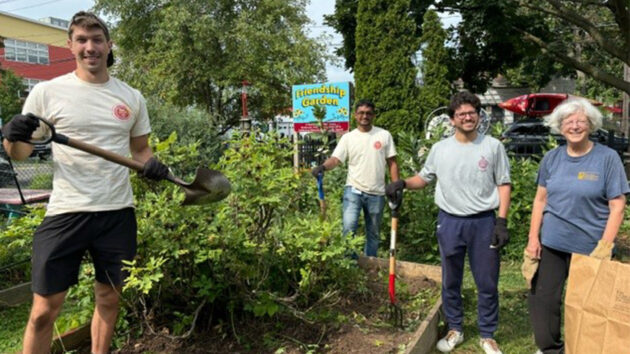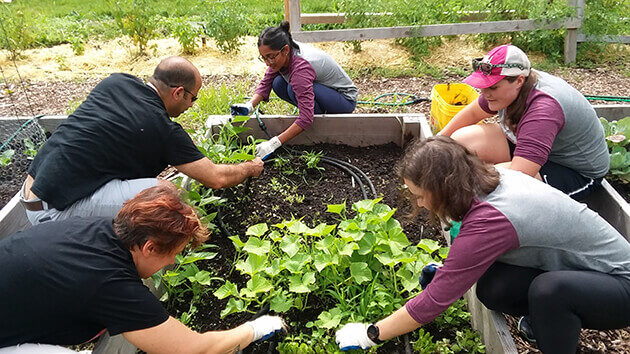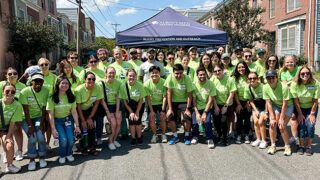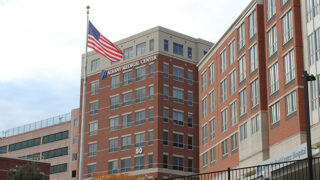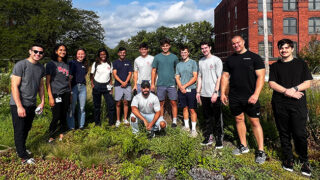Complementing Classwork in the Community
Service learning is an important part of our medical school curriculum designed to expose students to the challenges facing underserved communities to complement classwork and strengthen not only medical skills, but compassion and commitment to improving the health of their community.
This requirement is in place for all four years of medical education. We require 40 hours over four years, however many students go beyond that. They have found their experiences to be incredibly rewarding.
How It Works
Service learning is based on community identified needs and usually requires some degree of training.
Our curriculum stresses the social determinants of health, instills compassion and encourages a commitment to community-based health interventions particularly for the underserved.
The timing of Service Learning in the curriculum depends on which opportunities the student chooses, but at least half of the 40 hours required must be completed before the first day of 3rd year of study.
There are approximately 20 programs designated as service learning opportunities to choose from.
In addition, volunteer activities, including health fairs and health education sessions for children, are available to all students. See more below.
Service & Engagement
In addition to the many service learning opportunities, all medical students are encouraged to participate in a Day of Service and Engagement during their freshmen orientation.
The August Day of Service and Engagement introduces new students to the communities surrounding the campus. Many agencies and organizations already working on solving health and social justice issues are sites for students to volunteer for one day in basic tasks that put them in touch with community members and issues.
The Department of Family and Community Medicine also hosts events throughout the year to acquaint medical students with the community and provide vital resources and health education to its residences, such as the Sheridan Hollow Health Fair and Teddy Bear Hospital Pop-Up Clinics, where children bring their stuffed animals for a "check up" by medical students and learn about the body and good health habits through hands-on displays and interactive programming.
Please see the Service Learning Handbook for descriptions of current service opportunities and polices [PDF].
Contact Us
Community Outreach and Medical Education
ME 722 The Commons
Angela Antonikowski, PhD
Associate Dean for Community Outreach and Medical Education
518-262-6181
Allyson Weiser
Director of Community Outreach
518-262-6181
Family and Community Medicine
TS 101
Katherine Wagner, MD
Director of Community Outreach
[email protected]
518-262-5797
Theresa Weinman
Administrative Coordinator
[email protected]
518-262-5797
